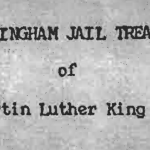 Have you ever wondered how one formulates a belief? I’ve been thinking about this recently and I think I’ve finally formulated my belief on how one formulates a belief. 🙂
Have you ever wondered how one formulates a belief? I’ve been thinking about this recently and I think I’ve finally formulated my belief on how one formulates a belief. 🙂
I feel that belief formulation is so important because it’s a key component to cracking, constructing and deconstructing the broader cultural psyche and therefore, cultural trends within. This could play a huge part in the next decade to ending culture wars and bringing on more tangibly productive works on earth as for the Kingdom. As everyone starts to cognitively and experientially work within a similar framework that provides space to exhibit free will in a new medium of engagement, I think what was once negatively imputed systems of thought and actions can quickly turn to peaceful and healthy positives ones.
I’d seriously love to hear your thoughts about what I think, and what you think on how one formulates a belief:
1. Wholistically having knowledge of, and being fully informed about a topic (I am defining ‘knowledge’ as: A solid intellectual understanding from both ends of the spectrum).
2. Humbly living within your intellectual and experiential exploration of the topic, providing space for those who socially, scientifically and theologically disagree to enter into your context.
3. Prayerfully coming to a conclusion through (in this order): the Word, church tradition, current cultural contexts and your experiences with each of those.
And from a Secular formation of a belief (as I am not naive enough to believe the broader secular world would entertain placing upon themselves a Christian worldview):
1. Wholistically having knowledge of, and being fully informed about a topic (I am defining ‘knowledge’ as: A solid intellectual understanding from both ends of the spectrum).
2. Humbly living within your intellectual and experiential exploration of the topic, providing space for those who socially, scientifically and theologically disagree to enter into your context.
3. Coming to a conclusion through the wholistic knowledge (intellectually and experientially from both sides) of current cultural contexts (religious and secular) within your personal experiences of those who agree and disagree with you.
From here, I feel that the medium of engagement can’t help but shift. Thoughts?
Much love.











